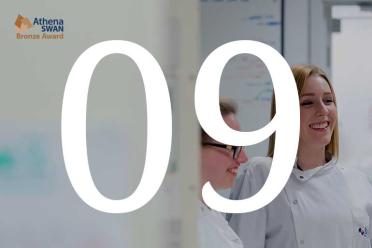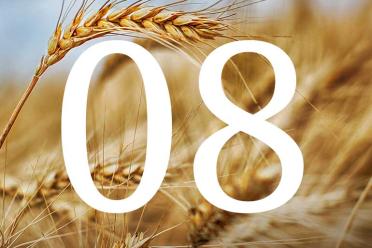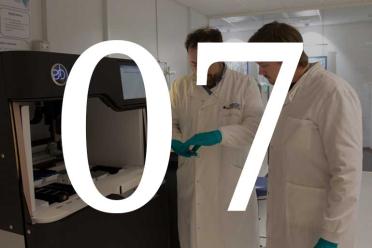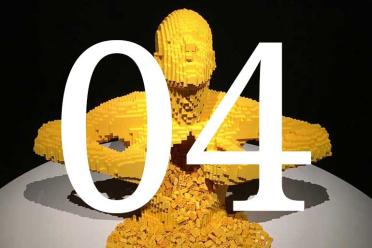Our top ten from 2016 at Earlham Institute
2017 has swung in with full force and springtime is now just around the corner. We thought we’d look back on which of our articles, features and news stories were most popular in 2016.
It was a busy year at Earlham Institute, not least considering we underwent a brand and name change and got a brilliant new website to boot. So, what were our most popular articles from last year?

At Earlham Institute, we explore the breadth of life on earth. Sticking to model organisms just isn’t as appealing as delving into the inner workings of some of the planet’s most fundamental, complex or simply bizarre organisms.
Sometimes, these organisms provide us with important information on how to improve crops to resist pests and diseases, while other times they might allow us to inform conservation efforts in order to save species on the brink.
Often, too, these organisms can tell us a lot more about ourselves - and how we came to be.

EI is a diverse institute that aims to provide equal opportunities for all, therefore we were delighted to be given the Athena Swan Bronze award from our first submission last year. The hard work does not stop here, however, where we are implementing our action plan to promote a gender equity culture, and we are most certainly shooting for gold (via silver).

It’s all well and good sequencing the genomes of a vast range of animals, plants, fungi, viruses and bacteria - but how does this help in the real world?
Our three global impact pieces should help to answer this, the most popular of which was “global food security.” From sequencing wheat, rice and other important crops through to the pests and diseases which infect them, as well as investigating the fine balance within intricately woven ecosystems, our research really does help towards understanding how we will better feed and nourish the planet.

We have a first-rate technological and scientific capacity at EI, which is highlighted by the great number of methods we are able to help foster and develop.
One such method involves using RenSeq, along with the PacBio, in order to sequence longer stretches of DNA, which can help us to identify novel genes in plants that give rise to resistance from infections - among a swathe of other applications.

We were delighted to be able to interview three of our women in computing at EI, who helped shed light into the world of coding, science, mathematics and physics. Vanessa Bueno and Pilar Corredor-Moreno of the Saunders Group gave us two very entertaining and informative perspectives from early-stage PhD students, while Katie Barr of the Di Palma Group told us how she has molded a career for herself in the bioinformatics world.

Among a great number of new staff welcomed to EI last year was Dr Aidan Budd, who joined from EMBL as Scientific Community Manager in the Korcsmáros Group. Here, Aidan discusses the importance of community in scientific research, and his role at EI going forwards.

Another new addition to our Science Faculty last year was Dr Iain Macaulay, who joined as our Technical Development Group Leader. His expertise in single cell sequencing is at the cusp of innovation in next generation genome sequencing and has incredibly exciting potential to help fight important diseases such as cancer.

We massively value collaboration in scientific research at EI, and a number of our projects span the international scientific community. One such project we have been involved in is Omnipath, a resource published in Nature Methods that helps researchers better understand the interactions between biological signalling molecules.

Another important facet of EI is that we foster an open-source, open-data attitude, which we believe can help drive forwards the knowledge of the greater scientific community as a whole. A big proponent of this is the Davey Group, who have been responsible for setting up the first UK-dedicated node of CyVerse - an international, open-source database for plant genomics.

To round off the list, our most popular article of 2016 was actually a guide, which is something that the author would have been grateful for when completing his PhD. To add to our series on tackling the trials and tribulations of PhD life - we penned “10 things you need to know before writing your PhD thesis,” which has abundant hints for those who have decided to step their toes into the academic waters.
We just hope it didn’t put anybody off!
Check out our stories so far for 2017!